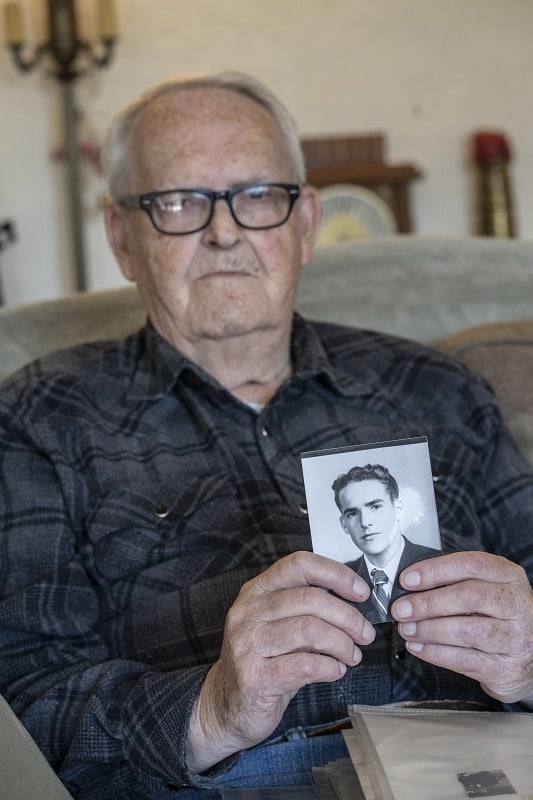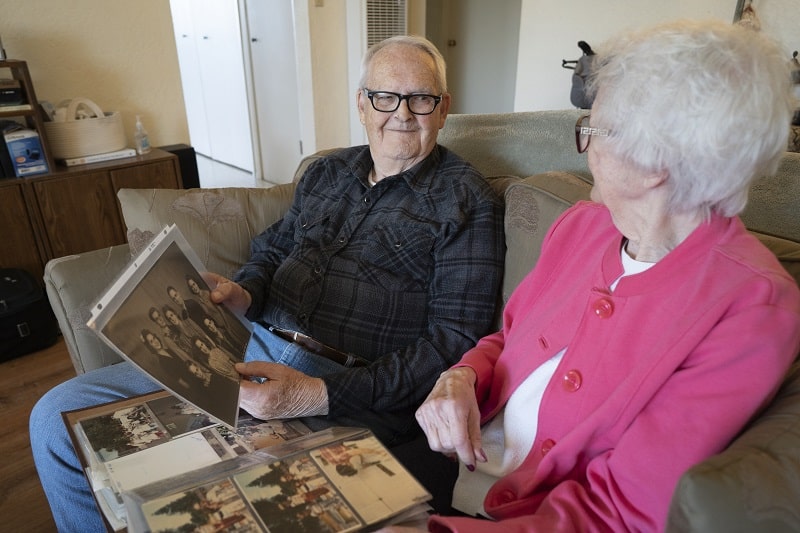Since reporting this piece last year, Neal's life journey has ended. However, in honor of World Heart Day, July 29, we republish it as it perfectly illustrates the quality of life that a patient with chronic heart disease can achieve at home, with the support of Cardiac Hospice services.

Why does chronic heart failure require specialized hospice care?
Heart failure can be more challenging to navigate than other conditions: its progression and symptoms vary from patient to patient; the usual therapies often don’t alleviate the chest pain, fatigue and shortness of breath; it can be difficult to differentiate between symptoms that are severe but benign, or symptoms that need immediate medical intervention. Without help, any of these can lead to unnecessary trips to the Emergency Department and increased stress for all concerned. Cardiac Hospice is a specialized level of hospice care, designed to carefully monitor the patient and communicate and support the caregivers, to improve comfort and quality of life, and to reduce emergency medical intervention.
Neal Brown, 95, claims to be a dreamer, but in reality has been a doer all his life, active and involved in both his career and family. A civil engineer who graduated from Berkeley, Neal designed and built everything from major freeways to housing subdivisions. After retiring from his own business, he continued to work on homes for family members from California to Colorado to Idaho—even into his 80s.
“Dad suffered a heart attack and a stroke with paralysis in 2006,” says daughter Christina Canady, “but after eight weeks of rehabilitation, you wouldn’t know he had had a stroke. He had polio as a young adult, but didn’t share, until recently, that he has suffered from leg pain, every day since. He always just kept going, not wanting us to worry about him. But recently, he developed weakness and occasional chest pain, and I wasn’t sure he was managing his medications. I was worried.
“There’s a fine line when the child steps into the parent’s role—it’s hard for someone like my dad who’s very independent and used to caring for others to listen to his child advise him how to take care of himself.”
Christina reached out to Neal’s physician. He recommended Neal start on palliative care with Providence Palliative Care Napa Valley. “Shortly after that, he was diagnosed with chronic heart failure,” says Christina. Neal transferred from palliative care to its cardiac hospice care. “That diagnosis was three years ago, and thanks to the support we’ve received from Providence Hospice Napa Valley, he still lives at home with my aunt and cousin, completes a few jigsaw puzzles each week to keep his mind sharp and enjoys visits and updates from his four children, four grandsons, six great-grandchildren and numerous nieces and nephews.”
“Dad has a whole team caring for him. His nurses visit twice a week, checking and tracking his vitals, appetite and how he’s feeling, reviewing his meds and ordering prescriptions for delivery. A home health aide comes twice a week to give him a massage to maintain his circulation and his social worker visits regularly. They’re all kind and respectful, and like family to us. Times when we would have been reluctant to call the cardiologist with what seems like a small thing, we can call Hospice Napa Valley, any time of day or night. If there’s an issue, they’ll send a nurse right away.
“Just as importantly, it has brought peace to us as a family to have unbiased, medical professionals dedicated to his health and wellbeing. We can ask the nurses about anything, and if something needs to be addressed, they talk with him. He’s more likely listen to them, and I don’t have to get into an argument with him. Instead, we can just enjoy being father and daughter.“ Cardiac hospice care has been a blessing to our entire family.”
To find out if Cardiac Hospice is right for you or your loved one, call us at 707.258.9080

